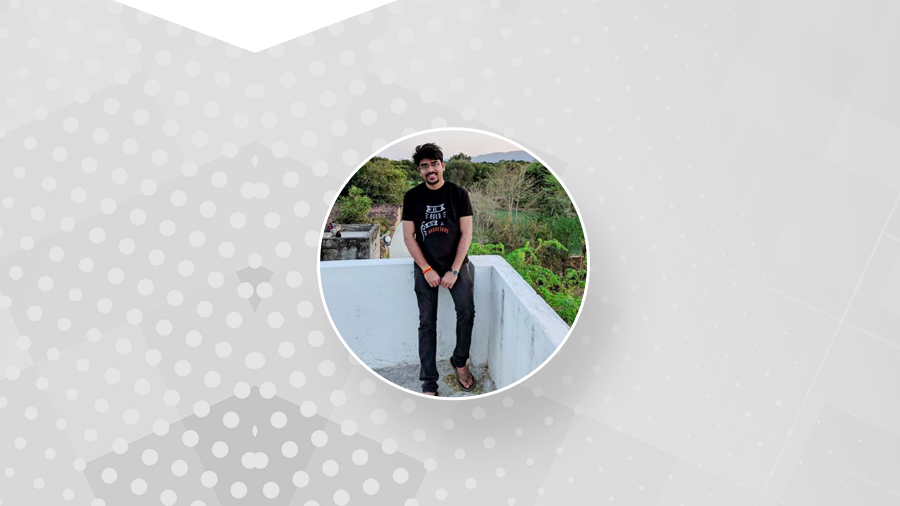Disclaimer: Previously published on Insideiim.com
Around the globe, Management Programs are appreciating the prowess of the hands-on or practical way of learning i.e. grasping the classroom learning by doing it on the field. At IIM Udaipur, this thought translates to Immersion – in other words, getting students to work into real-life scenarios and explore the learning perspectives for themselves.
In the first year of the MBA Programme, there is a course on Indian Social and Political Environment, whose main aim is to make the future managers aware of the social and political scenarios of a developing country like India.
Rural Immersion Programme is a part of the course where students are expected to work in groups of five and spend a week in rural areas of southern Rajasthan. Student groups collaborate with NGOs which are working diligently in the given areas for a long period of time and try to understand on the ground realities and the problems faced by the ones who are at the bottom of the pyramid.
This experiential journey of mine started on 18 Feb 2019, when I left the campus with four friends of mine who are part of my study group and shifted to our designated village, Sakroda which was approximately 35 km away from the campus. Our host and working partner were an NGO named Hanuman Van Vikas Samiti (HVVS), who are running many Self-Help Groups (SHG) for the betterment of the lives of Tribals of the nearby villages. Our research village was Taank, where we interacted with the villagers, self-help groups and the local administration to understand their social life.
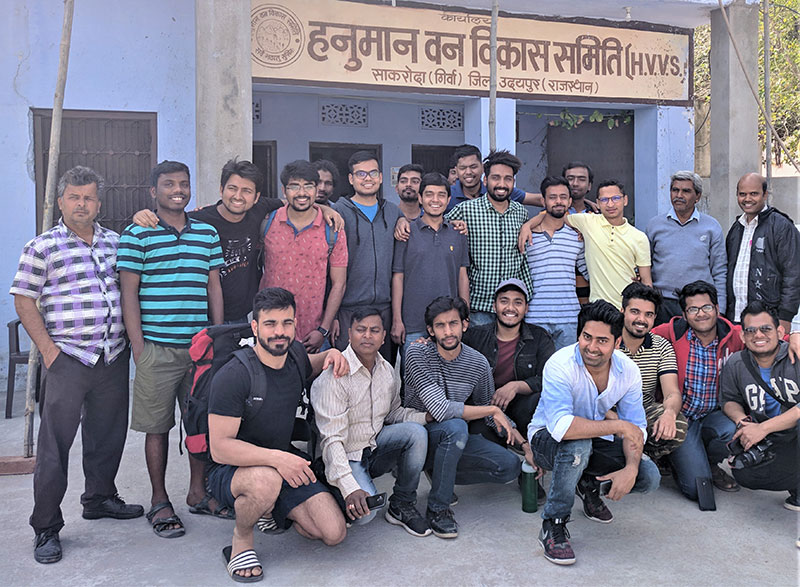
We started our first day in understanding the village, how the settlements were distributed, what were the common property resources available in the village, the distance of panchayat and other institutions etc. Anganwadi of the village was our first stop and the lady who was the in-charge gave us a very good picture of the demographics of the villages. Other than that, we talked to some SHGs and the Sarpanch – head of the village panchayat, to get the idea of the settlement and resource pattern of the village.
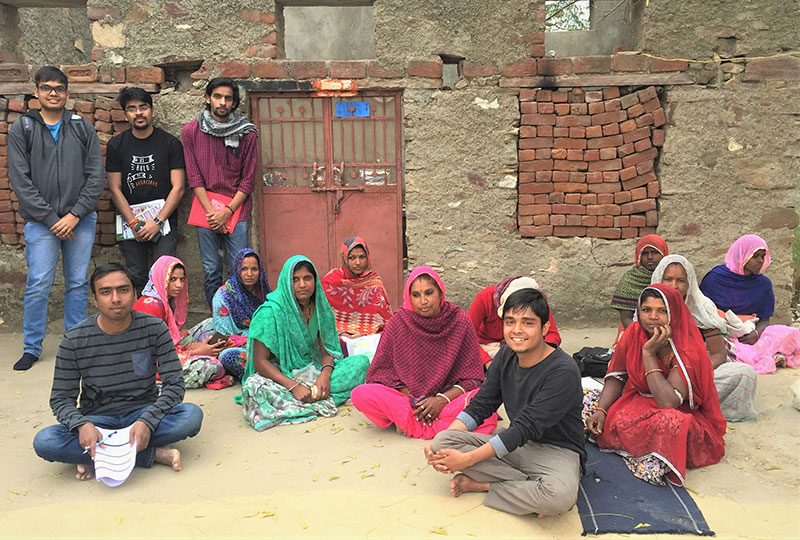
The main assignment of this year’s Rural Immersion was on “Rural Elderly and Access to Health Care” and each student had to work individually on the same. Accordingly, each member of the group interviewed at least 5 elders within the habitation and tried to understand the difficulties faced by the elderly people of the village in maintaining his health. What all health problems they were facing in their day to day life? Was there any proper working health care facility available in and around the village? If yes, how far was it from the village? How was its connectivity from the village? etc.
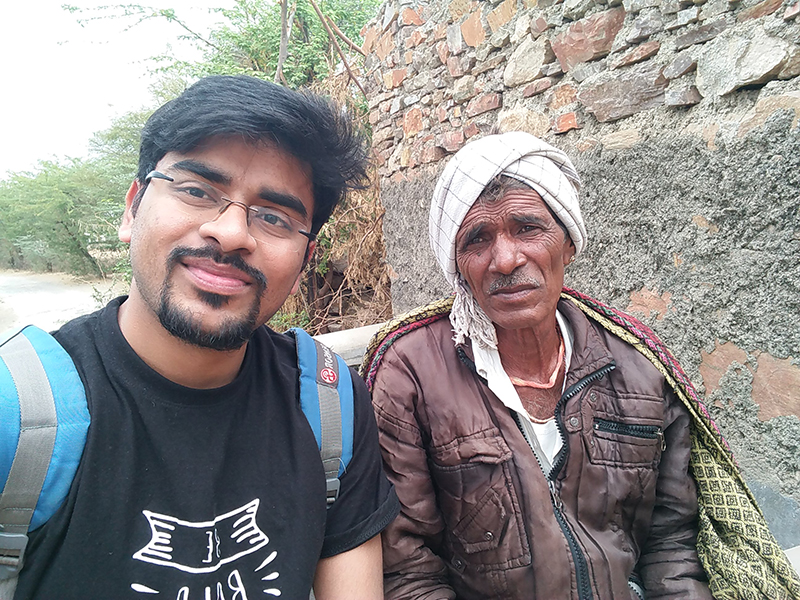
Other than the main assignment, each student also had one optional assignment among the following: Common Property Resources, Unsafe behaviour in Rural Areas, Assessment of Ujjawala Yojana and Study of people with disabilities. My assignment was to understand the unsafe behaviour in rural areas, for which I interacted with farmers, conducted surveys and tried to understand their farming methodology i.e. crops grown in each season, cultivation practices, usage of fertilizers, awareness about the effect of pesticides, measures used while handling pesticides, storage and disposal of the containers of these chemicals and other safety concerns related to them. While other members of the group have optional assignments on Common Property Resources and Assessment of Ujjawala Yojana which gave all of us a wide perspective of the issues faced by the people of the village and the efficacy of the government schemes. The most persistent problems which we observed are the lack of water for drinking and irrigation, lack of knowledge regarding the harms of using fertilizers, lack of awareness on social welfare and government schemes etc. Later, we shared our experiences which we gained from all the surveys and people’s responses with our respective NGOs and like all other things this journey came to an end on 22nd Feb 2019.
These 5 days provided me with a wholesome experience.
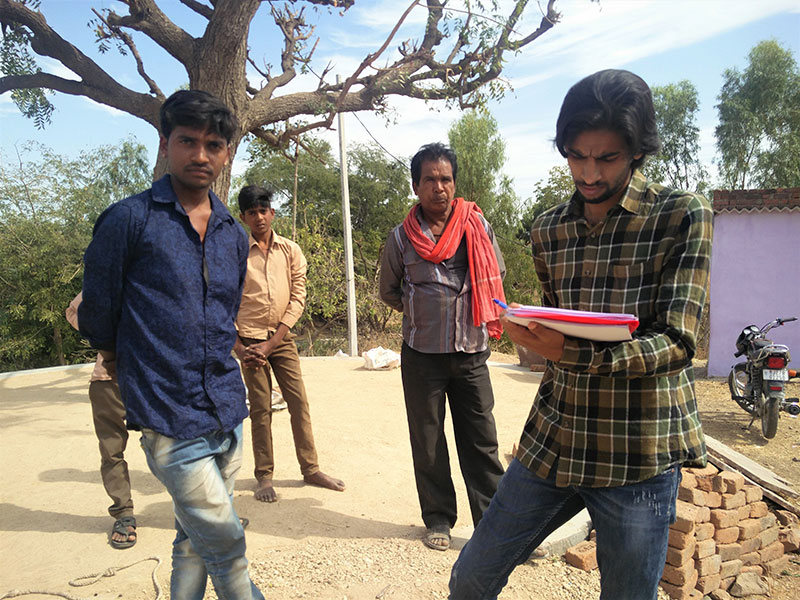
This programme was a life changing experience for me as well for all the other students, as for most of us this was the first chance to explore rural areas. Prior to this immersion, I only had a superficial idea of the challenges faced by people of rural areas but only after talking to them, I felt and got the real picture of their hardships, their optimistic attitude towards life despite so many problems and their embracing nature for outsiders. Overall, it was an enlightening and enriching experience.
For all the upcoming management students who will get a chance to be on a similar expedition, I want to suggest a few things that can enhance your experience: Be extremely sensitive towards rural people, Understand the behaviour of the people, the market and other commercial aspects of the village, Bring candies along with you to distribute among the kids, Leave your phones aside and enjoy the stay by playing games at night, telling stories, dancing and singing around the bonfire, Ask people before taking pictures/videos and if possible go for site seeing. This will give you a great opportunity to unwind and build bonds. Make the most of your expedition.
